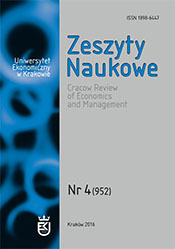Między przeznaczeniem a wolnym wyborem. Przygodność człowieka w filozofii Alberta Schweitzera
Between Destiny and Free Choice: the Contingency of Man in Albert Schweitzer’s Philosophy
Author(s): Leszek KusakSubject(s): Philosophy, History of Philosophy, Ethics / Practical Philosophy
Published by: Wydawnictwo Uniwersytetu Ekonomicznego w Krakowie
Keywords: contingency; crisis of culture; dehumanisation of man; experiencing solidarity; ethics of reverence for life; hierarchical biocentrism
Summary/Abstract: The world described by science is, according to Schweitzer, terrible despite its greatness. The order of the world remains a mystery to man, and any attempts to justify the sovereignty of man’s will meet the insurmountable barrier of objective determinants of human existence (our birth, imperfect intellect, shortness of life; what limits man as a thinking and active subject).The world of civilisation and culture created by man is also becoming independent of man and opposes man as a hostile force. The ominous consequences of this double contingency may, to some extent, be neutralised by establishing a universal moral signpost that is binding for all people. In Schweitzer’s philosophy, this role is performed by the ethics of reverence for life. The principles, consequences, cohesion, and credibility of his programme of transforming man are the subject of consideration in the article.
Journal: Zeszyty Naukowe Uniwersytetu Ekonomicznego w Krakowie
- Issue Year: 952/2016
- Issue No: 04
- Page Range: 65-78
- Page Count: 14
- Language: Polish

